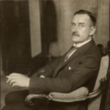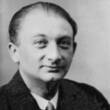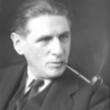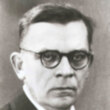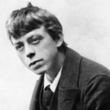Berlin Alexanderplatz
(Libby/OverDrive eBook, Kindle)
Available Platforms
Description
More Details
Also in this Series
Published Reviews
Choice Review
Hofmann (Univ. of Florida) provides a new, nuanced English translation of Döblin's Berlin Alexanderplatz (1929), one of the most influential German novels of the 20th century. The task cannot have been easy, given the linguistic and structural difficulty of the work, but Hofmann has previously translated works by Franz Kafka, Herta Müller, and Jakob Wassermann, not to mention 14 works by Joseph Roth--an admirable record. This extensive experience obviously provided valuable insights into the art of translation. Hofmann's excellent afterword is as much a treatise on the art of translation as it is a discussion of the novel. Rendering in English this modernist portrait of Berlin in the 1920s required much skill, because Döblin's book is an impressionistic view of Weimar Berlin as seen by crooks and the downtrodden. The difficult subject matter is not self-evident even in the original German. Hofmann's most interesting inclusion is explications of opaque phrases. As he writes in the afterword, he considers it "a dereliction of duty for a translation to be baffling," and his intent is to "clarify or interpret or guide." Examples of his addenda include "this section is from the coffee leaflet," "here he is washing the glasses," and "they are on the tram." A major contribution to German literature in English translation. Summing Up: Highly recommended. Lower-division undergraduates through faculty; general readers --James N. Hardin, emeritus, University of South Carolina
Publisher's Weekly Review
In this translation of a harrowing and sprawling novel of 1920s Germany, the shifting fortunes of a man newly released from prison counterpoint the societal changes of the Weimar Republic. Döblin's (1878-1957) first published the novel in 1929; it showcases the bitter underside of a society wracked by the aftermath of war and on its way toward totalitarianism. The story opens with protagonist Franz Bieberkopf being released from prison and heading to Berlin in hopes of finding a job. He ends up drifting between legal and illegal work, which bears a terrible toll on his body and sets in motion a series of tragic events. Periodically, Franz's story pauses so that other characters can recount stories of their own, which sometimes echo and sometimes contrast with Franz's circumstances. Hoffman's translation moves seamlessly from the personal to the societal and back again, using Anglicisms ("Not if what I want's the silk coat, innit?") that are sometimes jarring. A constant throughout the novel is a sense of political unrest: characters heatedly debate Marxism even as nationalism and anti-Semitism are rarely out of view, hauntingly anticipating the rise of Nazism. This is a damning portrait of violence both personal and societal, with a sense of something terrible on the horizon. (Mar.) © Copyright PWxyz, LLC. All rights reserved.
Kirkus Book Review
"On Tuesday, 14 August 1928 von Arnim planted a bullet in the body of Pussi Uhl": no, it's not The Sopranos but instead a classic German novel of the criminal demimonde of the Weimar era.Franz Biberkopf is fresh out of prison, where he drew a few years for killing a woman. A low-level criminal otherwise, he finds himself in a different world, one in which Nazis are beginning to occupy the stage and people are lining up to take sides all around him. He flirts with fascism, but so does everyone; one of his confidants is outraged that a friend married an American woman who turned out to be a "Negress" and who, when confronted with the fact of her ancestry in divorce court, tried to sue for damages. "Gorgeous woman, petal-white, descended from Negroes, maybe dating back to the seventeenth century. Damages." Franz soon tires of politics, even if he buys the newspaper with "the green swastika on the masthead" and believes its lurid tales. Meanwhile, he makes halfhearted efforts to live a straight life, mostly because, as one chapter title tells us, "The Police HQ is on Alexanderplatz," the Berlin square that Biberkopf haunts. Still, he can't help but fall back into bad habits. There are other characters at work along the Alexanderplatz, though, more fantastic as the Ulyssean story progresses: at one point, anticipating Wim Wenders' film Wings of Desire, two angels accompany Franz, "two angels on Berlin's Alexanderplatz in 1928 alongside a former manslaughterer, then burglar and pimp." They provide clarity, for now death is stalking Franzand everyone he knows and the whole of Berlin. American readers will have to adjust their ears to the translation's frequent use of Cockney ("Well, who'd'you fink, the fat girl, coz I had no goods left on me"), but Hofmann's version is vigorous and fresh, bringing Dblin to a new generation of readers.A welcome refurbishing of a masterpiece of literary modernism, one of the most significant German novels of the 20th century. Copyright Kirkus Reviews, used with permission.
PW Annex Reviews
In this translation of a harrowing and sprawling novel of 1920s Germany, the shifting fortunes of a man newly released from prison counterpoint the societal changes of the Weimar Republic. Döblin's (1878–1957) first published the novel in 1929; it showcases the bitter underside of a society wracked by the aftermath of war and on its way toward totalitarianism. The story opens with protagonist Franz Bieberkopf being released from prison and heading to Berlin in hopes of finding a job. He ends up drifting between legal and illegal work, which bears a terrible toll on his body and sets in motion a series of tragic events. Periodically, Franz's story pauses so that other characters can recount stories of their own, which sometimes echo and sometimes contrast with Franz's circumstances. Hoffman's translation moves seamlessly from the personal to the societal and back again, using Anglicisms ("Not if what I want's the silk coat, innit?") that are sometimes jarring. A constant throughout the novel is a sense of political unrest: characters heatedly debate Marxism even as nationalism and anti-Semitism are rarely out of view, hauntingly anticipating the rise of Nazism. This is a damning portrait of violence both personal and societal, with a sense of something terrible on the horizon. (Mar.)
Copyright 2018 Publishers Weekly Annex.Reviews from GoodReads
Citations
Doblin, A., & Hofmann, M. (2018). Berlin Alexanderplatz . New York Review Books.
Chicago / Turabian - Author Date Citation, 17th Edition (style guide)Doblin, Alfred and Michael Hofmann. 2018. Berlin Alexanderplatz. New York Review Books.
Chicago / Turabian - Humanities (Notes and Bibliography) Citation, 17th Edition (style guide)Doblin, Alfred and Michael Hofmann. Berlin Alexanderplatz New York Review Books, 2018.
Harvard Citation (style guide)Doblin, A. and Hofmann, M. (2018). Berlin alexanderplatz. New York Review Books.
MLA Citation, 9th Edition (style guide)Doblin, Alfred, and Michael Hofmann. Berlin Alexanderplatz New York Review Books, 2018.
Copy Details
| Collection | Owned | Available | Number of Holds |
|---|---|---|---|
| Libby | 1 | 1 | 0 |


























